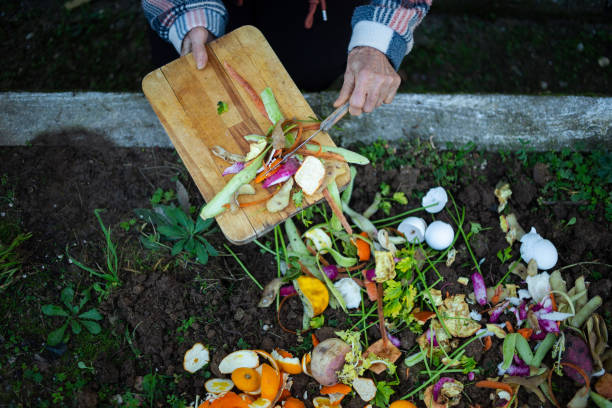Okay so first off—let’s be honest, a lot of us throw out way more food than we probably think we do. Like, ever looked in your fridge and seen that bag of spinach you swore you were gonna eat and now it’s just a slimy mess? Yeah, same.
Food waste is a big deal. Not just cuz it’s wasting money (which it def is), but also it’s bad for the environment. When we toss out food, we’re also wasting all the energy, water, and resources it took to grow, transport, and cook that food. And in landfills, food just sits there and releases methane gas (which is not great for the planet). So yeah, food waste = not good.
But there’s good news too: zero-waste cooking is a thing, and it’s not as scary or complicated as it sounds. It just means trying to use all of the food you buy, and not letting stuff go to waste. Here’s how you can actually start doing it — even if you’re not a pro chef or whatever.
1. Plan Your Meals (seriously just do it)
This one’s kinda boring but SO important. When you plan what you’re gonna eat for the week, you’re way less likely to buy random stuff you don’t need. Just write down a few meals (they don’t have to be fancy), check what you already have in your fridge or pantry, and make a shopping list from there.
Also – don’t go grocery shopping hungry. That’s how you end up with 3 bags of chips, a weird dip, and no actual food.
2. Get Creative With Leftovers
Instead of just nuking yesterday’s dinner in the microwave and being sad about it, try turning it into something new. Leftover roasted veggies? Throw ’em in a quesadilla or toss them with pasta. Got rice? Stir-fry it. Old bread? French toast or croutons, boom.
Also soup. Soup is like the hero of leftover land. Just throw a bunch of stuff in a pot, add broth or water, some spices and boom, new meal.
3. Use the Whole Ingredient
Okay, so here’s the thing—most of us throw away stuff that’s actually edible. Carrot tops? Pesto. Broccoli stems? Slice ’em up and cook with the florets. Potato peels? Toss them with olive oil + salt and bake for crispy snack vibes.
Even banana peels can be cooked (no for real, google banana peel curry).
Also: save bones, veggie scraps, herb stems — make homemade broth. It sounds like a lot but it’s literally throwing stuff in water and letting it simmer.
4. Store Food Right
So much food goes bad just because we don’t store it properly. Stuff like herbs go slimy fast if you just throw them in the fridge. Wrap them in a paper towel and stick in a jar or glass of water, like a little bouquet.
Also, label stuff in your freezer. No one knows what that random frozen block from 5 months ago is. You’re not gonna eat mystery food. Label it. Trust me.
5. Understand Expiry Dates (they lie sometimes)
There’s “sell by,” “best before,” “use by”… and honestly, it’s all confusing. Most dates are about quality, not safety. Like, yogurt is usually fine even a few days after its date as long as it smells and looks normal. Don’t toss stuff just cuz the date says so.
Just use your senses — if it looks fine, smells fine, and tastes fine… it’s prob fine.
6. Compost What You Can’t Eat
Okay, sometimes stuff does go bad. It happens. But instead of throwing it in the trash, compost it. If you’ve got a garden, great. If not, check if your city has a compost program. Or even look into countertop compost bins if you’re in a small space.
Even if you just compost your coffee grounds and veggie peels, that’s less waste going to landfills.
7. Buy Ugly Produce
You know those weird-shaped carrots or apples with a little bruise that no one wants? They’re still totally edible. A lot of stores toss food just because it looks “wrong.” Some shops or farmers markets even sell “ugly” produce for cheaper.
Support those when you can. Your soup does not care if that potato was lumpy.
8. Cook Smaller Portions If You Always Have Leftovers
Not everyone is gonna eat “day 3 of chili,” let’s be honest. If you or your fam doesn’t like eating the same thing multiple times, just make less of it. Half the recipe. Or freeze half. You don’t have to cook huge batches every time.
9. Use What You Got Before Buying More
Before you run out to buy more stuff, look in your fridge. Try to make a meal out of what’s already there. Even if it’s just a “whatever bowl” of rice + egg + random veg + sauce, it works.
You don’t have to make a masterpiece every night. Sometimes, it’s just about using what’s on hand.
10. Be Chill With It
Zero-waste doesn’t mean you have to be perfect. Sometimes stuff goes bad. Sometimes you forget those green beans existed. Don’t beat yourself up. The point is to reduce waste, not be zero-waste robot person.
Just try your best, make little changes, and it adds up.
In conclusion (lol sounds fancy)
Zero-waste cooking is about making the most out of what you already have, wasting less, saving money, and being kinder to the planet. It’s not some elite lifestyle—it’s just being a lil more thoughtful in the kitchen. Anyone can do it. Even if you mess up sometimes.
And hey, bonus — your trash won’t smell as bad when there’s less rotting food in it. Win-win.

